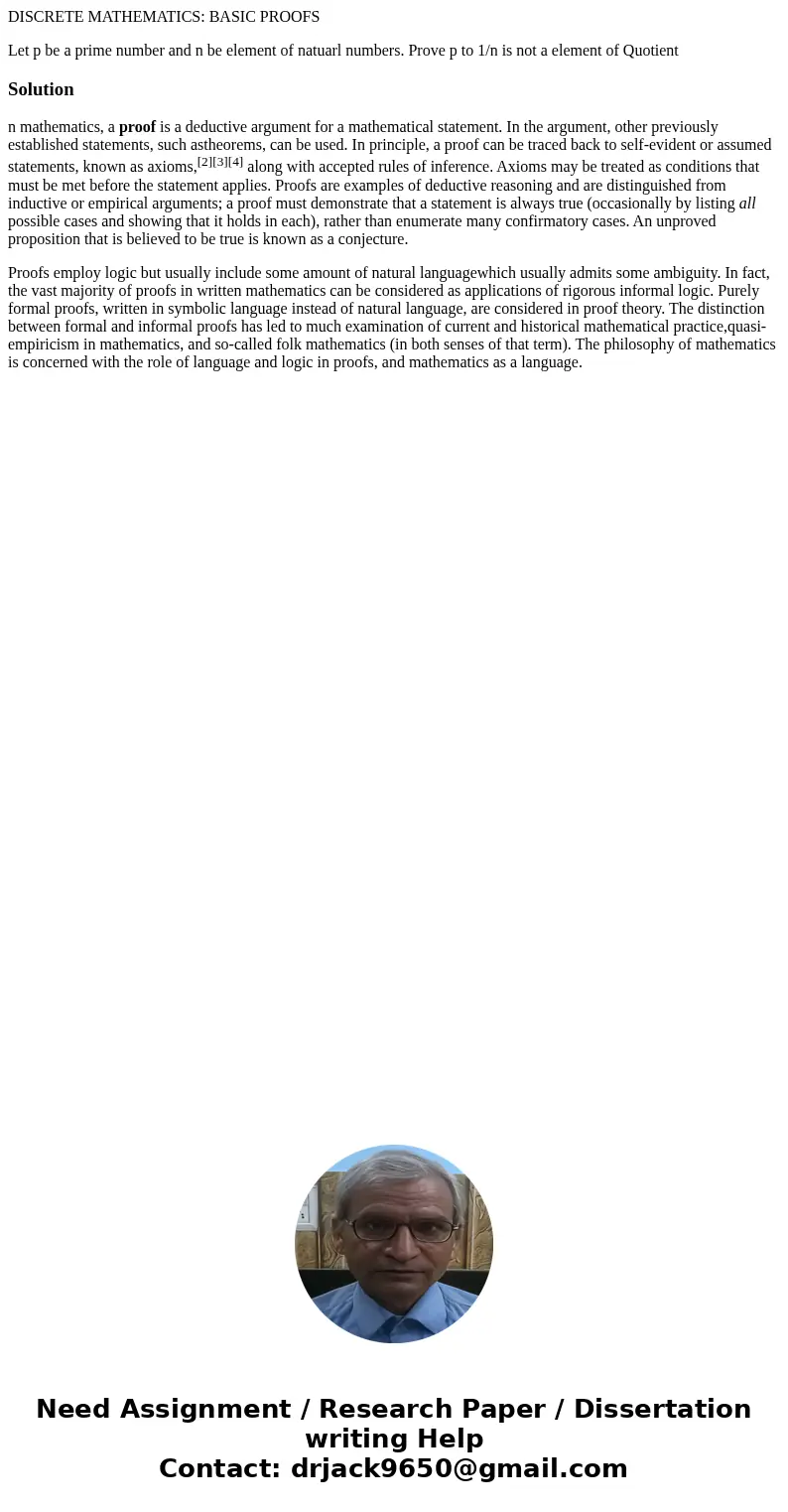DISCRETE MATHEMATICS BASIC PROOFS Let p be a prime number an
DISCRETE MATHEMATICS: BASIC PROOFS
Let p be a prime number and n be element of natuarl numbers. Prove p to 1/n is not a element of Quotient
Solution
n mathematics, a proof is a deductive argument for a mathematical statement. In the argument, other previously established statements, such astheorems, can be used. In principle, a proof can be traced back to self-evident or assumed statements, known as axioms,[2][3][4] along with accepted rules of inference. Axioms may be treated as conditions that must be met before the statement applies. Proofs are examples of deductive reasoning and are distinguished from inductive or empirical arguments; a proof must demonstrate that a statement is always true (occasionally by listing all possible cases and showing that it holds in each), rather than enumerate many confirmatory cases. An unproved proposition that is believed to be true is known as a conjecture.
Proofs employ logic but usually include some amount of natural languagewhich usually admits some ambiguity. In fact, the vast majority of proofs in written mathematics can be considered as applications of rigorous informal logic. Purely formal proofs, written in symbolic language instead of natural language, are considered in proof theory. The distinction between formal and informal proofs has led to much examination of current and historical mathematical practice,quasi-empiricism in mathematics, and so-called folk mathematics (in both senses of that term). The philosophy of mathematics is concerned with the role of language and logic in proofs, and mathematics as a language.

 Homework Sourse
Homework Sourse